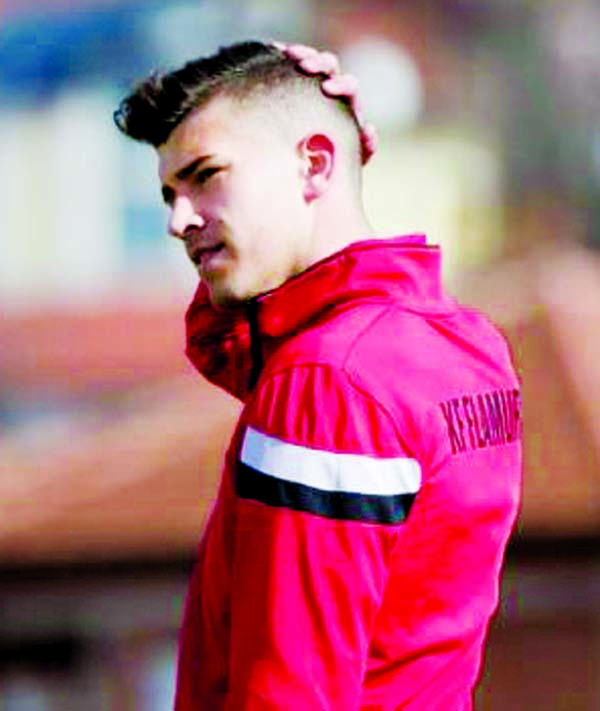
AFP, Gracanica:
Sixteen-year-old Ilija Ivic just wants to dodge the abuse and play football.
But as the first ethnic Serb picked to represent Kosovo on a professional youth squad, there is a price to pay in a region still bitterly divided along ethnic lines.
After he was invited to join Kosovo’s under-19 team last month, Ivic became the target of online attacks and intense media scrutiny.
The most scathing reactions come from fellow Serbs who have branded him a “traitor” for representing Albanian-majority Kosovo, a former Serbian province whose independence Serbs have never accepted.
Kosovo, which broke away in a bloody war 20 years ago, is still home to small pockets of Serbs who remain loyal to Belgrade and rarely mix with their Albanian neighbours.
When Ivic was called up from his Pristina Flamurtari club to play on the U19 squad, the reaction was explosive.
“Bomb in Kosovo – a Serb on a Kosovo team,” read one tabloid headline in Belgrade.
The backlash has affected his family, with Ivic’s mother Tanja swiftly sacked from her job in the Belgrade-funded centre in Gracanica, a Serb enclave in Kosovo, without official explanation.
For now, her husband Dusan is still holding down his job as a high school accountant.
“But I’m afraid that I’m going to be the target of similar measures,” he told AFP.
Ivic, a tall, confident defender with a stylish haircut, says he tries to focus on football.
“When it comes to politics, comments and malice don’t affect me,” he told AFP on the sidelines of a practice session with Flamurtari in Pristina.
“I look at it through the prism of sports and football,” he continued. “I will answer them on the pitch.”
One of his Albanian teammates, however, said it was obvious the youngster was under strain.
“He does not comment on the pressure, but it is visible on his face,” said 27-year-old midfielder Lorik Maxhuni.
Sports are a frequent arena for tensions with Serbia, who managed to block Kosovo from joining UEFA and FIFA until 2016.
Inside Kosovo, most sports teams are segregated and ethnic-Albanians and Serbs rarely play each other.
Though Kosovo declared independence in 2008, Belgrade has maintained influence over the Serb minority by financing parallel education, health, and administrative systems in ethnic Serb enclaves.
Serbs who buck Belgrade’s official line can quickly become ostracised.
“Belgrade has been pretty successful in keeping the Serbs under control. That’s why they were so hostile towards Ivic,” political analyst Nexhmedin Spahiu said.
“Although he’s only a teenager, he could establish a precedent not only for athletes but for the Serb minority as a whole. And Belgrade wants to prevent it at any price.”
On the other side, some Kosovo Albanians have rallied around Ivic, who local media describe as one of the most talented players of his generation in Kosovo.
“Let Ilija play freely wherever he chooses,” Kosovo’s Prime Minister Albin Kurti wrote on social media, calling the teenager a victim of “segregation”.

